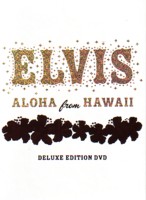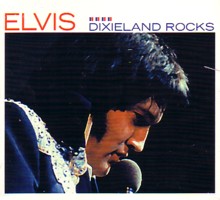 |
 |

Music Producer Rick Rubin: Your first records were 78 rpms? Jerry Leiber: We were really committed to black music, not rock'n'roll. We thought rock'n'roll was really silly, to be frank with you and concocted by Alan Freed and Jerry Wexler and a couple of other ne'er-do-wells in the music business that were trying to rustle up publicity and excitement about a form, and the form was essentially white. And some black guys who got funny with it would imitate white singers and get away with it because they had a little bit of black in their emotional material. But to us it really was a failure, culturally and musically. Stoller: We wrote the songs we wrote in different styles.
Leiber: Some of them had a more dated sound and we were doing some country blues, and some of them had a more white edge to them when we were doing Elvis Presley. When Elvis topped the charts with Hound Dog Jerry Leiber met Mike Stoller to tell him the news. Neither was impressed at the time with Elvis's milk-white version of the gritty song they wrote for Big Mama Thorton in 1953. But in Elvis they found a fellow-traveller, in many ways as at home in and accepted by the black culture and idiom as they, a very physical manifestation of their intellectual understanding of it. Rubin: Was Elvis really the breakthrough to get your songs over? Stoller: I don't think so, because there was some earlier ones. We had a big territorial hit in LA with Riot In Cell Block No.9, 1955 I think- didn't sell anywhere else, but our little company didn't have the money to promote it. Leiber: None of our things are as white as this, but Rock Around The Clock was rhythm and blues, but white-starched rhythm and blues... Stoller: Done by a white performer. And that made it 'palatable' to those stations that wouldn't play black records. Rubin: If it was made by Little Richard they wouldn't have played it? Stoller: Well, that's a prime example. Leiber: They were different audiences. Richard could do it and black audiences would buy it but white audiences were not, they were buying Rock Around The Clock. MOJO: So how does the crossover get orchestrated? Stoller: First of all it really couldn't have happened in a certain time period. It just couldn't have happened that ethnic music performed by black performers that was out of their cultural heritage could be played on the broad pop stations. They wouldn't play black artists... Little Richard doing Tutti Frutti at first wasn't played on any white stations. Pat Boone doing Tutti Frutti was played. They covered it because so many stations -and this was at the beginning of this transitional era - wouldn't play Little Richard's record because he was black. So they would play Pat Boone's record. But ultimately they started playing Little Richard's record... MOJO: Going back to Elvis, who initially underwhelmed, you went on to write for him, including Jailhouse Rock. Stoller: Yeah. That was the first movie score we wrote. We flew into New York from LA, where we were living at that time and we had a hotel suite. We had a piano put in, in case the muse struck us, and Jean Aberbach - he and his brother [Julian] owned Hill & Range Songs and they had to deal with Colonel Parker but created Gladys Music and Elvis Presley Music - handed us a script for a movie. We threw it in the corner with the tourist magazines that you get in hotels. We were having a ball in New York, going to the theatre, going tojazz clubs to hear Miles Davis and Thelonious Monk, doing a lot of drinking. On a Saturday morning - we'd been there about a week- Jean knocked on the door and said, in a very Viennese accent, "Vell boys, you vill haf my songs for the movie." Jerry said, "Don't worry Jean, you'll have them." Jean said, "I know." And he pushed a big chair in front of the door and sat down and said, "I'm going to take a nap and I'm not leaving until you have my songs." So we wrote four songs in about five hours and then were free to go out. They were Treat Me Nice, You're So Square, I Want To Be Free and Jailhouse Rock. MOJO: You were particularly playful with the sexual ambiguities in Jailhouse Rock. Leiber: Yeah, and sometimes triple if I was lucky! Mojo: By that time you already had your own record company, Spark. How unusual was it in the early '50s for songwriters to start their own label? Stoller:There weren't many. MOJO: Did you do it because you felt you were making records rather than merely writing songs? Stoller: We would sometimes have a song and we would present it on a demo in the early days to Capitol Records and they would record it with one of their artists and it would come back and didn't sound like a rhythm and blues record, it would sound like a swing record or something entirely different. So we just wanted to make sure that our intention was what we got. The first record we produced, without credit - there was no such term as 'producer' at that time - was Hound Dog by Big Mama Thornton. Johnny Otis was supposed to run the session. We had rehearsed and he'd played drums. When we got in the studio [it was] his regular drummer. It wasn't happening. I said, "Johnny, you've got to play the drums, do what you did in rehearsal." So he said, "Who's going to run the session." I said, "We will." Stoller: Atlantic gave us the term 'producers' after we argued for a long time that we wanted credit for making the records. We didn't say "as producers" - the term really should have been 'directors', like in film. But when we finally got them to agree to give us a credit, I remember Jerry Wexler said, "How many times do you want your name on the record. You know, you wrote the song." When we started recording songs that we hadn't written as well, the point got across.
|
|





